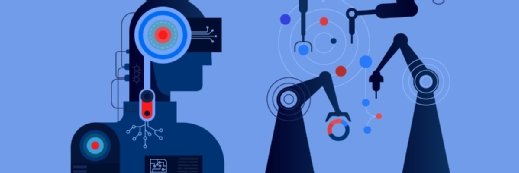
Getty Images
AI Tools Predict Alzheimer's Up to 5 Years Before Diagnosis
Artificial intelligence tools designed to predict Alzheimer’s up to five years before a diagnosis using EHR data achieved 'excellent' and 'outstanding' performance.
A study published last week in Alzheimer's & Dementia details how researchers from the University of Florida (UF) Health and UF College of Medicine developed artificial intelligence (AI) tools capable of predicting Alzheimer's disease development up to five years before a diagnosis is made using routinely collected EHR data.
According to the press release, there are currently no early screening tests for Alzheimer's, meaning that patients are only diagnosed after they begin to display symptoms. However, by the time symptoms appear, the disease has already caused significant damage to the brain.
Despite this lack of screening tools, there are known risk factors for Alzheimer's, including health conditions like high cholesterol, hypertension, and obesity, along with lifestyle habits and certain medications. These factors are routinely recorded in EHRs, and the researchers sought to evaluate whether this information could help predict Alzheimer’s effectively.
“We are developing and testing models that use artificial intelligence to extract this kind of information from patients’ medical records and predict which patients are likely to develop the disease many years before a diagnosis is made,” explained Jiang Bian, PhD, chief data scientist for UF Health and a professor of biomedical informatics in the UF College of Medicine, in the press release.
The researchers began by pulling real-world, de-identified patient data from the OneFlorida+ Data Trust repository, which contains EHRs for millions of individuals in Florida and select cities across the US southeast. From the 16.8 million records, the researchers identified almost 24,000 patients over age 40 diagnosed with Alzheimer’s or dementia to serve as the case group and almost 1.04 million patients over age 40 who were not diagnosed with dementia to serve as the control group.
From there, the team developed two prediction models: a knowledge-based model and a data-driven model. Each was tasked with scanning nearly 10 years of patient data and identifying patients the researchers knew later developed Alzheimer’s. The knowledge-based model made predictions using current scientific evidence, known risk factors for Alzheimer’s disease, and prescriptions for drugs approved to treat the condition and related dementias. The data-driven model made predictions based on all of these considerations, in addition to other factors revealed in the EHR that may contribute to Alzheimer’s.
“We wanted to see if the data-driven model could identify risk factors and social determinants of health in the data that experts were not even aware of,” Bian said.
Both models achieved what the researchers considered “excellent” or “outstanding” performance, with area under the curve (AUC) scores between 0.85 and 0.95, the press release notes. But the data-driven model significantly outperformed the knowledge-driven model in predicting Alzheimer’s disease at the time of diagnosis and one, three, and five years before diagnosis.
The data-driven model scored 0.939 for predicting Alzheimer’s disease at the time of patient diagnosis and 0.906 a year before diagnosis. Its performance declined slightly as the prediction window increased, scoring 0.884 in predicting Alzheimer’s disease three years before a diagnosis and 0.854 at five years before a diagnosis.
The data-driven model also identified multiple additional risk factors that the knowledge-based model did not, such as malaise, fatigue, muscle weakness, and mood disorders. Alongside these insights, the model found that women who receive preventive health care, including regular medical exams, gynecological exams, and mammogram screenings, had a lower risk of developing Alzheimer’s than their counterparts who do not receive the same care.
“Interventions begun during the incubation period of the disease likely are to be much more effective in maintaining or improving cognitive performance, delaying symptoms, or even preventing Alzheimer’s disease altogether,” Bian stated.
These findings may aid in developing early interventions and screening tools for the disease, but more research is needed.
Other health systems are also pursuing AI-based approaches to combat Alzheimer's disease.
Last week, the Goizueta Institute at Emory Brain Health and Emory Healthcare launched a collaboration with Linus Health to spur the deployment of AI-supported advanced digital technology within the health system to help primary care providers identify and treat early-stage Alzheimer's disease and other dementias.
Under the partnership, Emory will leverage Linus Health's iPad-based cognitive assessment technology, which includes a digital version of the clock drawing test that serves as a standard approach to evaluate cognitive impairment, within its internal medicine clinic.






